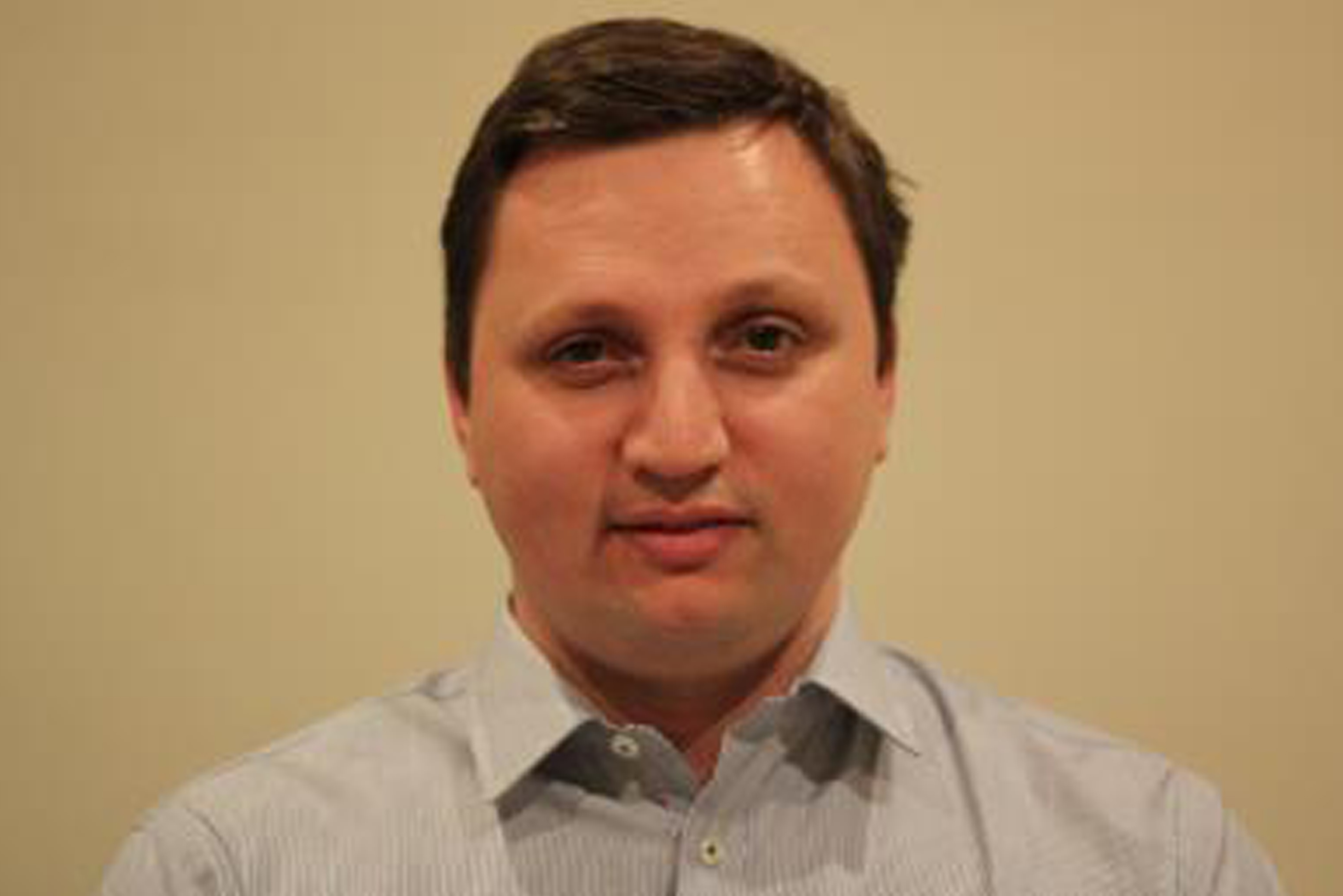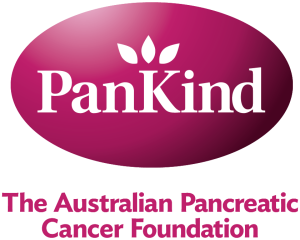Interview with Jeremy Humphris

We promised to update you about Jeremy's work and research and he kindly agreed to an interview to tell us more about the projects he is working on. Some of the questions were came through submissions on our Facebook page, so thank you to everyone who contacted us for your interest.
Q: Why did you choose to become a Researcher after your work as a Gastroenterologist?
A: I always wanted to undertake a PhD during my undergraduate studies and specialist training. While completing my final year of gastroenterology training I met Andrew Biankin who as many know is an inspirational clinician-scientist and had recently embarked on an exciting project to characterize the genetic mutations which drive pancreatic cancer. I jumped at the opportunity to join his research group and have thoroughly enjoyed developing a deeper understanding of the mechanisms involved in the development and progression of pancreatic cancer. I wanted to further develop an area of interest within gastrointestinal oncology that I hope will enrich my clinical practice and that I could incorporate into my clinical work.
Q: Is your expertise in Gastroenterology helpful to your research work and vice versa?
A: Our research group aims to translate our research findings into clinical care of patients with pancreatic cancer to improve current treatment. As such our research is often guided by a clinical question. Knowledge of the clinical presentation and management and challenges in these areas can facilitate this process. In familial pancreatic cancer we hope that a better understanding of the clinical features will facilitate our efforts to uncover novel susceptibility genes and the development of early detection strategies.
Q: What is a typical day for you and how do you manage the constraints of working as a Gastroenterologist as well as a Researcher?
A: Finding a balance between clinical work and research is challenging as both tend to be all consuming. I want my PhD to be my main focus so for the past few years I have kept clinical work to a minimum. This has only been possible with the generous support of foundations such as PanKind and the Gastroenterological Society of Australia. There is no typical day which means it never gets boring. My current work is largely computer based analysing large amounts of genetic data from our cohort of sequenced pancreatic cancers.
Q: Your area of study is familial pancreatic cancer, can you define familial pancreatic cancer?
A: The majority (up to 90%) of patients diagnosed with pancreatic cancer have developed the disease because of “sporadic” causes. This means the cancers developed from processes such as ageing or environmental factors (such as cigarette smoke) that randomly caused abnormalities in pancreas cells and led to uncontrolled growth. In 5% to 10% of all pancreatic cancers there appears to be an hereditary cause as suggested by multiple relatives in the family with pancreatic cancer. This suggests that some families carry a genetic predisposition to developing the disease. We see an inherited predisposition to pancreatic cancer in 3 different settings:
Hereditary syndromes with known genetic mutations, for example hereditary breast ovarian cancer (HBOC) due to BRCA2 gene mutations. These account for 15-20% of the burden of inherited pancreatic cancer.
Hereditary pancreatitis due to inherited mutations that predispose to chronic pancreatitis and subsequently pancreatic cancer, and
familial pancreatic cancer which accounts for nearly 80% of hereditary pancreatic cancer. Familial pancreatic cancer is a clinical definition and generally accepted as a family with at least two affected first-degree relatives e.g. parent-child or siblings. We only understand the genetic basis of pancreatic cancer predisposition in less than 25% of such families. Not all families which meet the criteria for familial pancreatic cancer will have an identifiable inherited genetic mutation with clustering of pancreatic cancer within families resulting from common environmental exposures e.g. cigarette smoking.
Q: Has your research advanced the knowledge of familial pancreatic cancer?
A: We have recently found in our cohort familial pancreatic cancer represents 9% of all pancreatic cancer cases. We found that members of familial pancreatic cancer kindreds may be at increased risk of developing cancers outside of the pancreas as well in particular melanoma, endometrial and possible breast tumours when compared to sporadic pancreatic cancer kindreds. familial pancreatic cancer patients were much less likely to be current smokers and had lower cigarette smoke exposure. This suggests that tobacco exposure may play a lesser role in the development of familial pancreatic cancer or that they require a lower dose in order to develop pancreatic cancer. We did not see any difference in age at diagnosis between familial and sporadic cases which is in contrast to other cancer syndromes such as hereditary breast cancer. However in some familial pancreatic cancer kindreds the children of affected parents developed pancreatic cancer at a much younger age. Familial pancreatic cancer patients were more likely to have multiple areas of precursor lesions in the resected pancreas specimen. Otherwise the clinical and pathological features and outcome between sporadic and familial pancreatic cancer was similar.
Q: Is familial pancreatic cancer common?
A: In our cohort familial pancreatic cancer represents 9% of all patients with pancreatic cancer. This is consistent with findings from other large international cohorts.
Q: What can families do that suspect they have familial pancreatic cancer?
A: Persons with a family history of pancreatic cancer, or carrying a known susceptibility gene (e.g. BRCA2) can have increased chance of developing pancreatic cancer. If you are concerned about your risks, talk to your GP about obtaining a referral to your local family cancer clinic. In collaboration with familial cancer clinics and participating hospitals and clinicians the Australian Familial Pancreatic Cancer Cohort (AFPaCC) was recently established at the Garvan Institute. AFPaCC is a registry for individuals or families who have multiple relatives affected by Pancreatic Cancer. AFPaCC investigates genetic and environmental factors that may account for the clustering of pancreatic cancer in some Australian families. Collating family history and environmental data helps to further define risks for unaffected family members, and also identify individuals eligible for a pancreatic cancer screening trial. Further information and registering for the AFPaCC can be found at: http://www.pancreaticcancer.net.au/afpacc/Australian-Familial-Pancreatic-Cancer-Cohort.
Where possible, persons at increased risk of developing pancreatic cancer should modify their risk factors. Some such as ageing are inevitable but others such as cigarette smoking which is the most well established environmental risk factor for pancreatic cancer can be changed. It is estimated that smoking accounts for 25% of all newly diagnosed pancreatic cancer. It is therefore very important that people who may be part of a familial pancreatic cancer kindred avoid all cigarette smoke exposure.
Q: What do you think are the best opportunities in research for improving outcomes for pancreatic cancer patients in future?
A: I think there are several approaches to improving outcomes for patients with pancreatic cancer both in the clinical and basic science research arena. There are too many opportunities to list here but I will outline some below. In clinical care we need to ensure all people diagnosed with pancreatic cancer are able to access high quality multidisciplinary healthcare including in a centre which has significant experience and expertise in managing pancreatic cancer. Development of strategies that detect pancreatic cancer or its precursor lesions at an early stage are attractive given the estimated 10 year window it takes to develop pancreatic cancer. Current strategies utilize pancreatic imaging such as endoscopic ultrasound in persons at higher risk of developing pancreatic cancer e.g. known gene mutation or familial pancreatic cancer as part of a research study and have shown some initial promise. In basic science research we need to build on our recent successes in understanding the genetic changes and molecular pathways that lead to the development and progression of pancreatic cancer. Understanding the molecular mechanisms of pancreatic carcinogenesis will facilitate identification of biomarkers for early detection, prognosis and response to existing and novel targeted chemotherapy agents.
Q: You are one of the experts who attended the weekend funded by PanKind to develop a National Pancreatic Cancer Research Strategy, what are your thoughts on such a strategy?
A: I think the weekend was hugely successful. It was great to hear the views on the current challenges and future direction of pancreatic cancer research from a diverse range of researchers, clinicians, funding bodies, consumers and the corporate sector.
Q: Working as a Gastroenterologist at a busy hospital and studying for a PhD in pancreatic cancer would be hugely challenging work, how do you switch off?
A: One of the benefits of doing a PhD is that I get most weekends free. During my downtime I enjoy spending quality time with my family (wife and 2 young active boys) and we love going to the beach, playgrounds and going on short weekend trips to the areas around Sydney.
Q: What is the likelihood of grandchildren getting familial pancreatic cancer when the disease took both grandmothers?
A: Unfortunately there is not yet a ‘genetic test’ for familial pancreatic cancer. Aside from a few known susceptibility genes, such as BRCA2, the genes responsible for the increased risk in familial pancreatic cancer families remain largely unknown. To see if anyone in your family is eligible for any genetic testing, you will need to obtain a referral to your local family cancer clinic. Here, they will take the time to obtain a full family history of all cancers, not only pancreatic. Unless a gene mutation has already been identified in the family, genetic testing is usually carried out in relatives with a cancer diagnosis only. Family history is the main way we can predict pancreatic cancer risk in unaffected family members. This is not ideal or highly accurate, but it is the best we have at the moment. For example, if someone has a relative affected on their mother’s side and a relative affected on their father’s side (e.g. 2 grandmothers), the most likely scenario is that these are both sporadic cases. Therefore they would not be considered to be at a significantly increased risk of developing the disease. The risk starts to increase when people have multiple close family members affected. For example, if someone has two first-degree relatives diagnosed (e.g. parent, sibling or child) their lifetime risk is estimated to be 10%, which is higher than 1.5% in the general population. Although it is more likely (90% chance) that relatives will not develop the disease, they may benefit from being monitored or screened from around 50 years of age. There is still so much more to learn about Familial Pancreatic Cancer. This will only be achieved through more research. If you would like to participate in the first Australian Familial Pancreatic Cancer cohort, or even just to be kept up to date, please contact the AFPaCC coordinator.
We received a number of questions on Facebook relating to Familial Pancreatic Cancer. Thank you to Susan K, Rebecca G M, Kathryn T and Shirley H T for your input.





